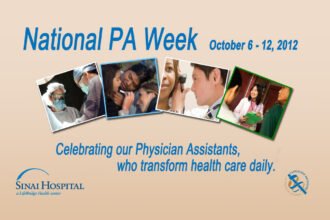Becoming a dietician is an interesting career path and its perfect for those who like food and enjoy helping others. You don’t necessarily have to be a good cook, or even enjoy cooking, however that is one path you could choose to go down with a dietician degree. Alternatively, you may be more focused on diagnosing and treating dietary and nutrition problems, offer guidance on individual cases or to a wider audience.
Becoming Qualified
Living in a diet-obsessed era where many of us are preoccupied with weight and the latest fad diet, it can seem that the title dietician gets thrown around a little. How can people know who to trust and who’s really right? As standard practice, a dietician must have a Bachelor’s Degree in Dietetics, or have taken alternative undergrad studies but have obtained a postgraduate or higher degree in Dietetics. They must also be registered with the Commission on Dietetic Registration (CDR) in the US or the Health & Care Professions Council (HCPC) in the UK. This ensures the integrity of dieticians and the scientific soundness of the information they disseminate.
Career Choices
The scope of dietitian jobs goes from research right through to working in the media. If you are interested in the academic side of dietetics then a role in research and education would allow you to explore this, uncovering new insight and circulating valuable information. You may work for an organization like the FDA, delivering these health guidelines to the public. Alternatively, you could play an important role in the food industry, influencing choices in the food creation process of companies that you believe in. Many food production organizations are constantly needing to update and adapt their products and recipes as allergies and intolerances are more common now and even developing good nutritional vegetarian and vegan options is a growth area. Another area of focus is sports nutrition where you will work with athletes to device nutrition plans based on the sports that they practice and events that they have coming up. As new research and theories arise you can trial new plans and find a winning combination for your client that can be used as a success story and selling point to win other athlete clients. Each client presents a unique challenge as you must take into account any underlying conditions and existing necessities and balance everything perfectly to the individual. A plan can be devised for a whole team but tweaked for each member. This kind of work can be very specialized and will involve working closely with coaching staff to identify the type of gains an athlete needs for their sport and even role within that sport, a marathon runner will need to keep weight down and develop stamina and endurance, whereas a football lineman will need to bulk up and show strength, power, and acceleration in short bursts. Others take to the media to use their skills on programs like Embracing Bodies or You Are What You Eat, working in the television industry can come in two different forms. You could be an on-screen expert where you really need to be competent in two areas here, presenting and your already-qualified dietician skills. If you want to do this consider a course of media training and you would also really need a TV agent as well, it could be a very rewarding career but one that is highly competitive an sometimes difficult to break into. Alternatively, you can work in TV as a dietician or as an expert researcher or production team member where you are responsible for the putting together of the show and ensuring the scientific and factual advice and data on the show is current, accurate and useful in this context. If you want to get your own ideas and take on things across you may want to partake in informative interviews on breakfast shows, promoting health via YouTube or through other media channels such as radio or writing articles for online blogs or news streams. If you enjoy engaging the public, this could be a preferable route. Finally, you might look to work in public or private health hospitals and clinics setting up meal plans and giving out nutritional advice for those recovering from an operation or illness in order to for them to make the quickest recovery, or to avoid hindering their recovery by indulging in the wrong type of diet.
Conclusion
Depending on your specific career path, location, and experience, you can earn anything between £18,000 – £50,000 a year, making it a rewarding and profitable vocation if you’re passionate about diets and nutrition. With such a varied wealth of opportunity, it’s field that can take you in a direction you never even considered and as such is one to seriously consider.








